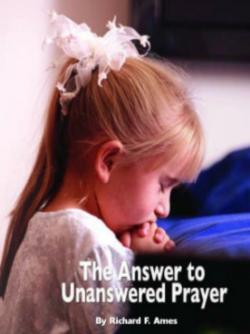Easter: Egging on a Myth?
On Easter, billions celebrate the resurrection of Jesus Christ. But how many really know what they are doing? Many do not realize that the first Christians did not celebrate Easter—and that Scripture offers a biblical alternative, instituted by God Himself.
What does Easter mean to you? Is it a time to enjoy brightly colored eggs and tasty chocolates? Is it an opportunity to wear a new "Easter bonnet" to church? Or is it a day when Christians should commemorate the death and resurrection of their Savior, Jesus Christ?
If you answered "none of the above," you are on the right track.
Some Easter customs, such as eating chocolate bunnies and wearing elaborate Easter bonnets, are fairly recent innovations. But did you know that "Easter" existed for many years before it became a "Christian" festival? And did you know that Jesus and His Apostles observed a different day as a memorial of His sacrifice?
Jesus' final night with His disciples was a Passover observance, which He told them to repeat each year "till He [Christ] comes" (1 Corinthians 11:26). Polycarp, bishop of Smyrna in the mid-second century, testified that the Apostle John had taught him to commemorate Christ's sacrifice through the annual Passover service. But within a generation of John's death, some had begun to oppose this apostolic practice. Eventually, as more and more leaders around the Roman Empire found it convenient to profess "Christianity," they found it increasingly desirable to purge their "Christianity" of its authentic Passover heritage and substitute an Easter Sunday observance.
Easter Sunday gained popularity, in part, because of the mistaken idea that Jesus rose from the dead on Sunday. In fact, careful Bible study shows that He rose on Saturday, near the end of the day, exactly three days and three nights after He had died and been buried, as He had promised (Matthew 12:40). Jesus died on a Wednesday afternoon, just before an "annual Sabbath"—the first day of the Feast of Unleavened Bread—and rose after 72 hours in the tomb, just before the end of the weekly Sabbath. The mistaken idea that Jesus died on Friday and rose on Sunday actually invalidates the very sign of His Messiahship (v. 39)!
Is Easter in the Bible? Because of a King James Version translation error, many in the English-speaking world wrongly believe that the Bible mentions Easter. In Acts 12:4, the KJV translates the Greek pascha (referring to the Passover) as "Easter." Virtually all other reputable translations, however, correctly render the word as "Passover"—the biblical observance that Jesus and His followers kept. Interestingly, in many modern languages, the word signifying "Easter" (e.g. Pascua in Spanish, Pâques in French) has its roots in this Greek word for the Passover.
In English and German, however, the modern Passover-replacement goes by the name of a pre-Christian goddess. The medieval English historian Bede traced the name "Easter" to a spring festival held in honor of the goddess Eostre, celebrating nature's revived fertility using symbolism of rabbits and eggs—common Easter images in English and German-speaking countries.
"But can't we honor God by 'Christianizing' pagan festivals?" some might ask. No! The prophet Jeremiah gave God's warning to His people: "Learn not the way of the heathen" (Jeremiah 10:2, KJV). Abandoning the Passover that God established, and replacing it with a man-made holiday, is not only rejecting the sign of Christ's Messiahship; it is disobeying God! If you would like to know more about the Holy Days that God established for His people, please write for your free copy of our informative booklet, The Holy Days: God's Master Plan.
True Christians should do as Christ commanded, commemorating His sacrifice each year at the Passover, and should not perpetuate the myth of a "Christian" Easter! After sunset on April 22, this year, true Christians will be remembering Christ's sacrifice as God intended. What will you be doing?






